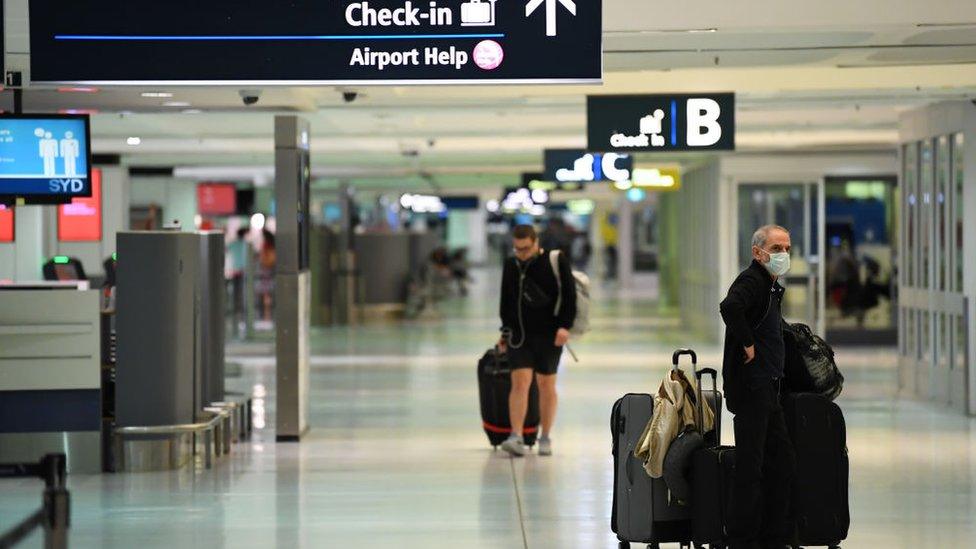Coronavirus: Have the Brits stranded abroad got home yet?
- Published
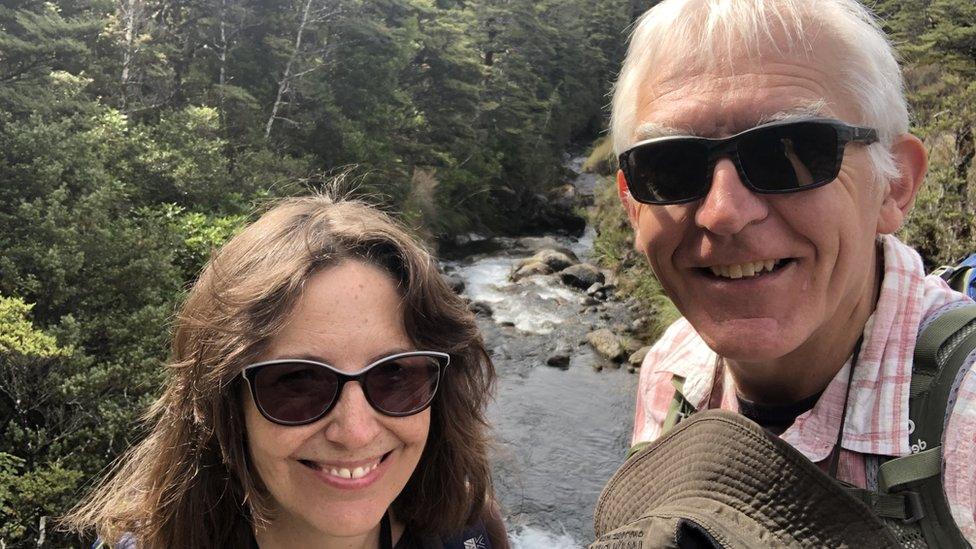
Marian and Ian were on a "trip of a lifetime" to New Zealand when they got stranded
Ian Presland and his wife Marian arrived back in the UK to find bunting, a bottle of milk, a lump of cheese and some eggs by their front door.
Their friends had bought them a welcome-back package after they finally arrived home from New Zealand, where they'd been stranded due to coronavirus.
The couple had already had three flights cancelled and had prepared themselves to be stuck there for weeks.
But their travel agent was able to get them last-minute seats on a flight out of the country with Qatar Airways and they got back to the UK on 1 April.
"It's weird but it's great to be back," says Ian, 60, from Nailsea, Somerset.
"We now just feel for all those thousands who are less fortunate than us. We feel very lucky to be back here.
"I think we got away lightly because we know people that have paid a lot of money for seats in two or three weeks' time.
"Presumably they will get home now but we're not sure."

Luke and Chiara were six weeks into a backpacking trip when they got stuck in Peru
Last week, Transport Secretary Grant Shapps estimated about 300,000 UK travellers were stranded abroad due to the coronavirus pandemic.
On 30 March, the government announced it had struck a deal with major airlines to help get people back.
It also pledged £75m to charter special flights from countries where commercial flights are unavailable.
So far, about 2,000 British nationals from seven countries have been brought back on flights organised by the Foreign Office.
It's not free though - passengers have to pay for a seat on a government chartered flight, and that has cost people up to £1,000.
Luke Wallwork and his girlfriend Chiara paid around £250 each for a place on a government flight back from Peru.
The 23-year-old, from Liverpool, believes it was down to the pressure UK tourists put on the government that finally made them take more action.
"The response we got in the first week was that you're kind of on your own and you're not going to get much support here," he says.
"As the momentum built and the pressure built and Peru got mentioned a lot in the media they basically had to give in a bit and see what they could do.
"It's been stressful but it's interesting to see how things work and the power people have if they come together. If we didn't come together and get our voices heard we'd still be stuck there."
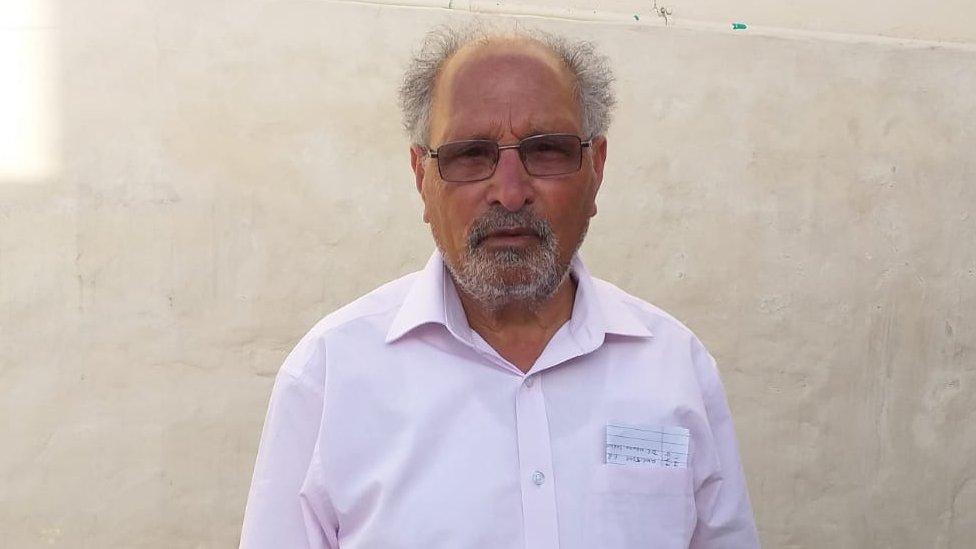
Amrik Bola has no way of getting onto one of the government charter flights in India
But how easy it is to get back can depend on where you are in the world and how much you can afford.
It's estimated about 20,000 Brits are stranded in India after the country went into a strict lockdown.
The government announced on Sunday it has arranged charter flights leaving from Goa, Mumbai and Delhi starting on Thursday.
But that doesn't help 73-year-old Amrik Bola, from Derby, who is stuck in a remote village in Punjab with his wife and sister-in-law.
They're eight hours away from Delhi and can't get on one of the government flights as they're banned from travelling between states.
"If they've arranged those flights, why don't they think about the 15,000 people struck in Punjab? That's really bad," says Amrik.
"Every day we end up crying. We're sitting three of us in a room. We don't know when we will get back.
"Our family is in England, our children are in England. If we are in England, we are close to our children if something was to happen.
"What we worry about is if something was to happen to us in India they wouldn't be able to come."
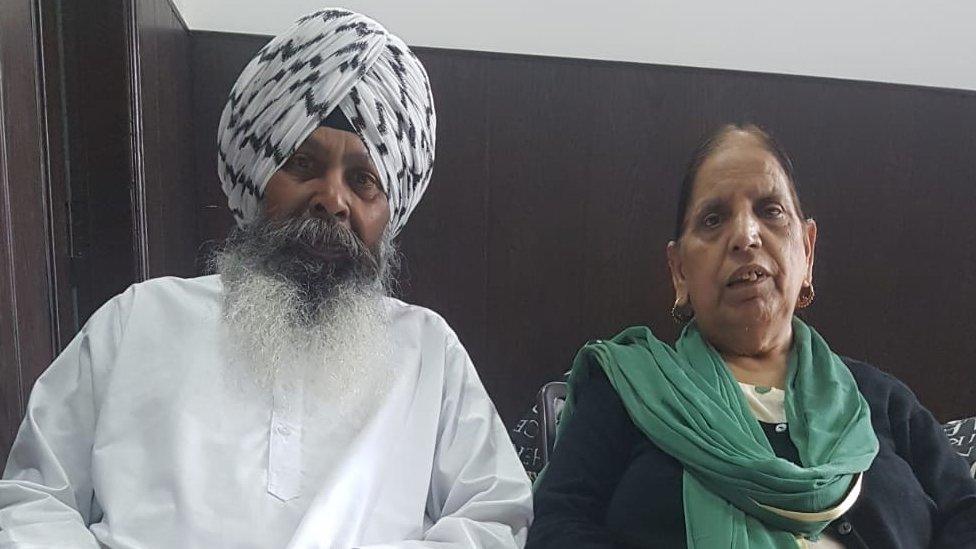
Bikramjit Sekha and Suriender Kaur are stuck in a remote village in Punjab
Many Brits in India are relying on their loved ones in the UK to help them get home due to the lack of internet access in remote places.
Aman Sekha, from Walsall, has been trying to get his parents Bikramjit, 67, and Suriender, 65, back for over two weeks.
He says he's had sleepless nights over it and has questioned why the government is charging so much for seats on its chartered flights.
"The flights normally would cost £350, they're charging us £600 and that's even if you can get a flight," he says.
"Not only is it double, but on top of that, they've only been able to organise a few flights and apparently there's thousands of people over there.
"I'm sorry I don't agree with anything they've done at the moment and can't understand why it's the case.
"I don't understand how they can go to the US and get people off a boat, yet you've got thousands of people sitting and waiting to pay for a ticket - even though it's double the money - to get out of there."
Allow X content?
This article contains content provided by X. We ask for your permission before anything is loaded, as they may be using cookies and other technologies. You may want to read X’s cookie policy, external and privacy policy, external before accepting. To view this content choose ‘accept and continue’.
The British High Commission in India has said it's working on arranging flights from other locations, external - including Amritsar in Punjab - but there are no confirmed dates yet.
But not everyone stranded abroad is able to rely on the government to put on flights.
The Foreign Office says it's only arranging government flights from countries where commercial flights are not possible.
In New Zealand, about 10,000 Brits have registered with the High Commission for help getting home.
Marie Young, 54, from Beccles, Suffolk, spoke to the BBC about being stranded in Auckland more than 10 days ago.
She says she's since been able to book onto a commercial flight home which is due to leave on Saturday.
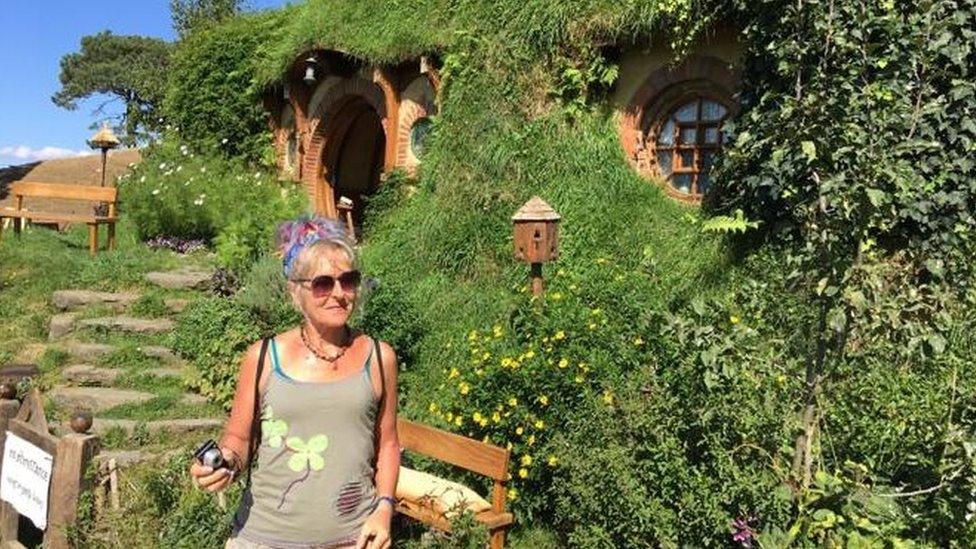
Marie's trip was top of her bucket list after being diagnosed with cancer
But Marie still hasn't received a refund for her original flight which was cancelled - so she's had to borrow £1,350 to pay for her new ticket.
"There's a duty of care with airlines to get you home if something happens. They can't just cut and run and leave you," she says.
"I think the government needs to put pressure on them. We're not expecting a free ride home but we are expecting a refund from a cancelled flight."
British travellers are being encouraged to arrange flights with airlines that are flying from their location - then seek refunds for their original flights with the airline or through their travel insurance.
Speaking at the government daily briefing on Monday, Foreign Secretary Dominic Raab promised all was being done to return those still stuck abroad, with more flights from India, South Africa, Nepal and the Philippines flying in later this week.

A SIMPLE GUIDE: What are the symptoms?
NEW GUIDANCE: What must I do?
NEW RESTRICTIONS: What are they?
LOOK-UP TOOL: Check cases in your area
MAPS AND CHARTS: Visual guide to the outbreak

The Foreign Office has since introduced a cap on the cost of a seat on its chartered flights based on how long the journey is.
A flight under six hours will be capped at £400 per person, flights between six and ten hours capped at £600, and flights over 10 hours capped at £800.
A Foreign Office spokeswoman said: "The government has committed up to £75m to help thousands of British people return home.
"In order to deliver value for money and put on as many flights as possible, anyone returning on a government charter flight will need to contribute towards their ticket based on the length of the journey.
"The amount charged will reflect only a proportion of the overall cost of the charter flight, which is why we have set aside the £75m fund."
People who are unable to afford travel costs and are struggling to get funds might be able to apply for an emergency loan, external from the government.
Instructions for UK travellers to return home can be found on the government's foreign travel advice, external website page.
- Published27 March 2020
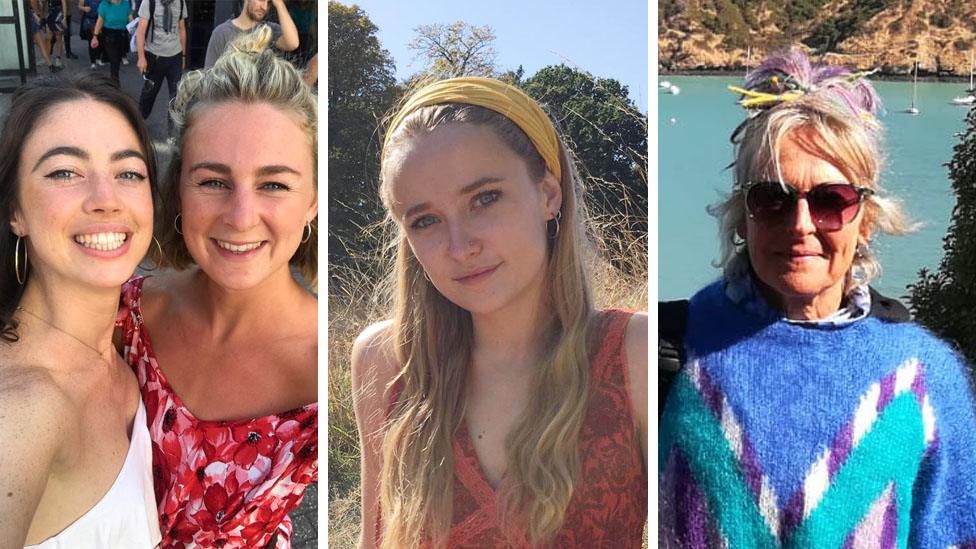
- Published30 March 2020
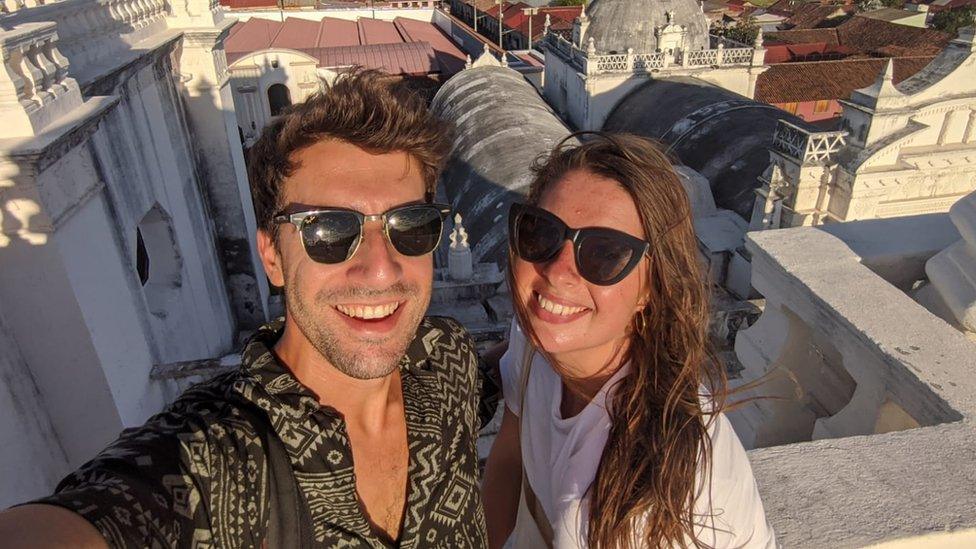
- Published30 March 2020
